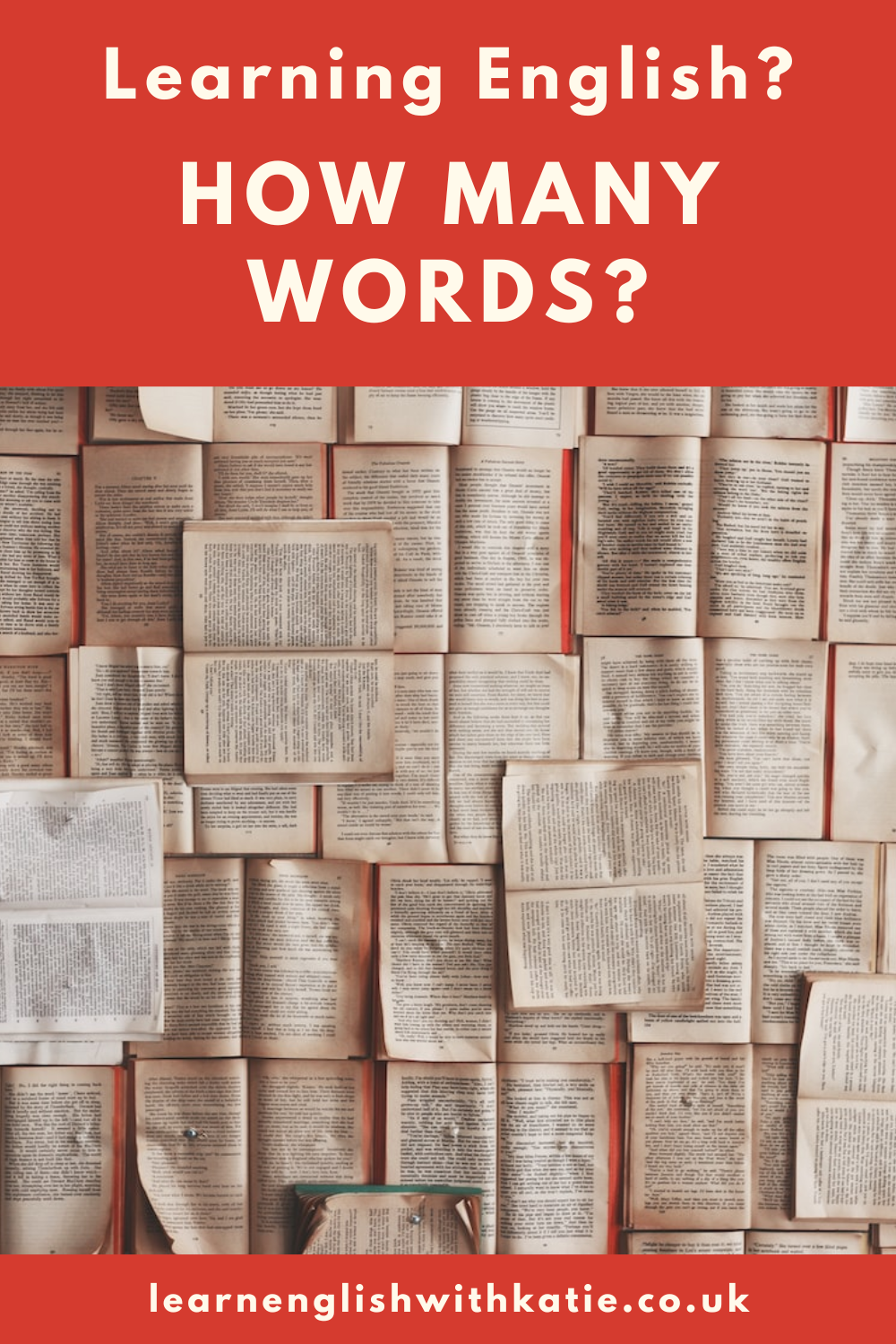|
There are a lot of words in English! In fact, English has more words than most other languages, although there are languages with more, like Chinese and Arabic. This makes vocabulary learning quite challenging for English learners. But how many words are there in English and how many do you need to learn? How many words are there in English? This is actually a complicated question and hard to answer! Why is that? One thing that makes it difficult is we have to decide what counts as a separate word and what doesn’t. Do we count “fall”, “falls”, “fell”, “fallen” and “falling” as one word or five? What about when “fall” is a noun? Is that another word or not? Do we count all the modern slang words that are not in the dictionary yet? What about all the old words that nobody uses any more? A joint Google and Harvard University study says that there are over a million words in English. This includes different forms of a word as mentioned above and probably lots of old words, scientific words and so on. The last printed version of the complete Oxford English Dictionary (printed in 1989) was so enormous that it filled 20 books! It contains about 273,000 headwords. (A headword is the basic dictionary form of the word without -s or -ed or other changes.) With all the word derivations and phrases, that’s 600,000 entries! Nowadays, of course, the Oxford Dictionary is digital and online. New words are added every year and there are now over 300,000 words. The Oxford Dictionary says that about 170,000 of these words are in use in modern English. I’ve read elsewhere that a lot of those words are scientific, technical or specialist and not used in everyday conversation. If you take away all the specialist words, you’re left with about 45,000 words. How many words do native speakers know? You probably understand more English words than you actually use, right? Well, it’s the same for native speakers too. The list of words that we can understand when we read or hear them is called passive vocabulary. The list of words that we actually use when we communicate is called active vocabulary. I’ve found lots of different answers to this question on different websites. Again, it depends on what you count as a separate word. I’ve found a few web pages which say that most adult native speakers of English have a vocabulary of between 20,000 and 35,000 words. I think this was based on a test which you can try yourself here: https://preply.com/en/learn/english/test-your-vocab. I scored 29,800 on that test! I think that’s probably passive vocabulary. I certainly wouldn’t use some of the words in the test but I understand them when I read them! Words like “quick” and “quickly” are not counted as separate words. “Play” and “played” are counted as one word but “take” and “took” are counted as two separate words in this test. On another site, I found this answer. A famous dictionary and word expert in the UK, Susie Dent, says, “The average active vocabulary of an adult English speaker is around 20,000 words, while his passive vocabulary is around 40,000 words.” An article on the BBC News website says that a native speaker knows between 15,000 and 20,000 headwords. Remember that means we’re counting “fall”, “falls”, “fell”, “fallen” and “falling” as one word. This is probably why all the different articles I’ve read give different numbers. It depends on how we count the words. How many words do learners need to learn? You obviously can’t learn all the words in English. Not even a native speaker can do that. But the good news is that you don’t need to know all the words! The BBC article says, “If you learn only 800 of the most frequently-used [headwords] in English, you'll be able to understand 75% of the language as it is spoken in normal life.” Then it says that you can understand TV and films with a knowledge of 3,000 words and you can read easily when you know 8,000 and 9,000 words. I tried to find out how many words an intermediate or advanced student might know. Again, different websites give different answers. The Oxford Learner’s Dictionary has a list of the most common 3,000 words that students should learn between A1 (beginner) and B2 (upper intermediate). There’s also a list of the most common 5,000 words that a C1 (advanced) student should know. Other websites say 8,000 words is advanced. I imagine that an advanced learner would know more than the core words in the Oxford 5,000 list and this might explain the different numbers. If a learner knows 10,000 words or more, they can probably speak and understand like a native speaker. Conclusion I think that building your vocabulary is an extremely important part of improving your English. Without words, your communication is limited, even if you know all the grammar rules! However, remember that not even a native speaker knows all the words in a language and you can say and understand a lot with just the most common 800-1,000 words. For further reading. (And this is where I got my information from): https://en.wikipedia.org/wiki/Oxford_English_Dictionary https://wordcounter.io/blog/how-many-words-does-the-average-person-know https://www.bbc.co.uk/news/world-44569277 https://www.oxfordlearnersdictionaries.com/wordlists/ If you would like to know how you can learn more vocabulary and how you can remember it, you will like my English Vocabulary Challenge e-book, which you can get here:
0 Comments
Your comment will be posted after it is approved.
Leave a Reply. |
About the blogFollow the blog for mini lessons and tips on how to improve your English. Categories
All
Archives
July 2024
|

 RSS Feed
RSS Feed
